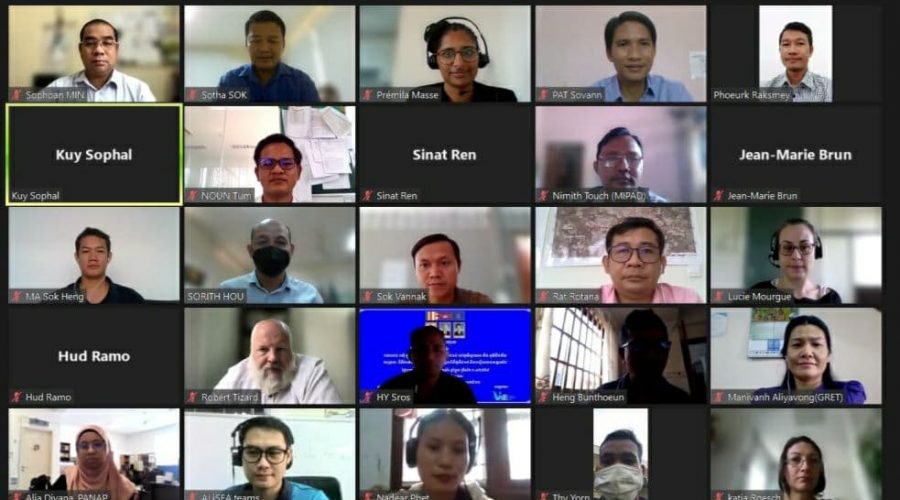
Online thematic session to share experiences on Challenges on Flood Plains “ Irrigated Perimeter”!
On 17 March, 2022 CFAP’s managing director, Sok Sotha participated in a thematic session to share experiences on challenges on flood plains amongst ALiSEA members in Cambodia. There were several case studies/researches on irrigation systems, agroecological practices, water management, conservation agriculture and challenges faced by farmers.
Irrigation business scheme, agroecological practices and conservation agriculture however needed to strengthen to ensure that they are capable to compete with non agroecological practices and or non conservation agriculture. Participants come from farmers’ organizations, NGOs, private sector, research institute and academia/university come together virtually for discussion irrigated perimeter and related issues for knowledge exchanges.
Business structure on water for irrigation is still challenging and not profitable while farmers, smallholders are not strong yet in term of small farm management, water management, good agricultural practice model(s) and maintenance management system of some irrigation systems at the farming communities. In this regard, agroecological practices and conservation agriculture needed to strengthen forward profitability and sustainability.
Sok Sotha shared CFAP’s experiences on household ponds, some results of the researches/studies on water uses for smallholder members and way forward better understanding of farmers on the results of studies/researches as well as existing and ongoing policy development, thus to minimize gap between farmers and documents/tools for the solutions.